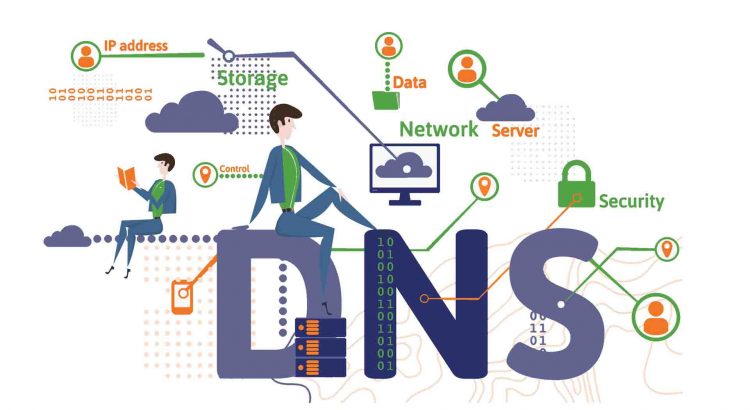Domain Name Server or DNS is a system that connects a Uniform Resource Locator (URL) with an Internet Protocol Address (IP Address). Normally, to access the internet, you need to type in the IP Address of a website. This method is quite inconvenient. Because, this means, you need to have a complete list of IP addresses of websites you visit and enter them manually. DNS is the system that summarizes this work for you. Now, all you have to do is remember the domain name and enter it in the address bar. DNS will then translate the domain into an IP address that the computer understands. For example, you want to access Google. Instead of writing 172.217.0.142 into the address bar, you just enter the address Google.com.
DNS function
From the explanation of what DNS is, you can already guess how DNS actually works. However, to make it clearer, here we describe the three functions of DNS:
- Request information on the IP Address of a website based on the domain name;
- Request URL information of a website based on the IP Address entered;
- Looking for the right server to send email.
Those are the three DNS functions that work automatically when you are accessing the internet. Well, before going into the explanation of how DNS works, you certainly ask why you have to use DNS?
Advantages of DNS
The following are some of the benefits of using DNS in internet activities:
- Easier to Surf the Internet. Compared to remembering a row of IP address numbers, of course it will be more convenient to remember the name of the website. The presence of DNS has succeeded in bridging communication between internet users and computers.
- More Consistent in Use. You can use the same DNS name even if there is a change in the IP Address used. Thus, visitor access to one website can still be carried out even though there has been a change in the IP address.
- Easier to Configure. When there is a problem with the IP Address being used, you can easily replace it with a different IP. It is enough to update the DNS and IP Address matching data. This will be explained further in How DNS Works.
- Safer. When using a DNS system, all online data transfer activities go through a gated DNS server. The system will prevent hacking attempts by irresponsible parties. So, the website will be more secure.
The need for digital IT is needed in daily activities, Bead IT Consultant is the right choice as your partner, visit our website by clicking this link: www.beadgroup.com

